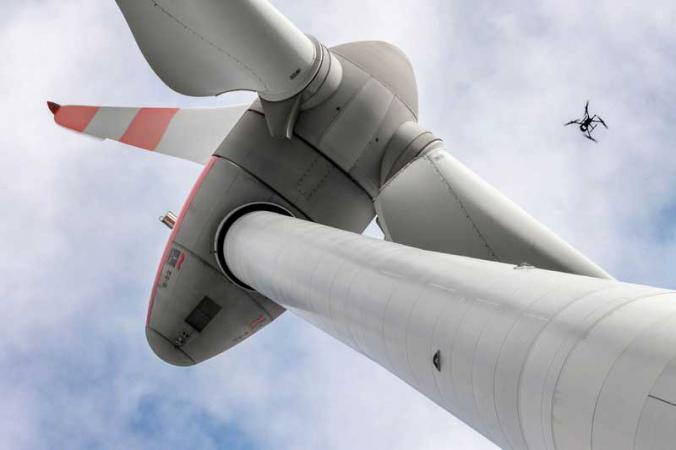Outsourcing of Reliability or Maintenance?
"IDCON - Should you Outsource Maintenance"
Outsourcing is a way to change operational processes. Care must be taken to secure that required quality and reliability levels will be met under new circumstances. Part 1/2 was released in Maintworld 2/2014.
Part one of this article covered the different levels of outsourcing maintenance work and the reasons for outsourcing. It covered also reliability aspect.
Cost focus
If an outsourcing contract is based on maintenance cost alone, without an incentive to reduce cost, it might lead to the provider having more of an incentive to sell service in the form of hours instead of delivering results.
If the contract is based too much on reducing costs, it is better that the contract be less than five years long. Anybody can reduce maintenance costs during a period of two, or maximum three years, after that costs will go up because the maintenance work you postponed to save money start catching up with you.
This is a story repeated in many cost-focused maintenance departments and it does not matter whether your maintenance department is outsourced or not.
Reliability focus
It is a well-proven fact that improved reliability will drive down maintenance and other costs. It is also common sense: If equipment is running reliably, we make product and it costs less to maintain because of fewer problems. Of course, there is a limit to how much you can pay to increase reliability but most actions you need to take to improve reliability are to do better with what you already have. Most of these actions include better basic inspections and use of cost-effective condition monitoring tools, planning of work, scheduling of work, execution of planned and scheduled work, recording of what was done and triggers to do Root Cause Problem Elimination.
All this can be done at a very reasonable cost with good leadership, training and coaching. As a first step, the parties have to agree on a balance between reliability and cost incentives as a foundation for the contract. To me it is clear that reliability is the most important factor. This first step will govern the details in the contract.
Obstacles
A very common obstacle is the difficulty to build a true partnership between Operations-Stores-Maintenance and Engineering. With very few exceptions, the contractor will be looked upon as a service provider and not a true partner in reliable manufacturing. I have worked with many outsourced maintenance departments and this is coming up as the most critical obstacle to overcome. Typically, operations demand work based on emotional priorities. This is expensive because work is done with higher priority than necessary. This results in work schedules being changed and the crews’ productivity goes down. A contractor should consider charging a much higher fee for work done based on an emotional priority.
It can also be difficult to get modifications done to improve maintainability and reliability through the engineering department. Stores need to support the maintenance function with staging and delivery of parts etc. All these phenomenon are very common also in insourced maintenance departments, but they are in a better position to do something about them.
One way of overcoming these obstacles is to outsource both operations and maintenance including stores and engineering. This is common in companies where manufacturing is looked upon as a non-core business. Examples include manufacturing of refrigerators, TVs, Computers etc. where one plant often manufacture many brand names.
One sales argument for outsourcing of maintenance is that maintenance is not a core business. To some extent I agree when it comes to carpentry work, painting, yards etc. but I do believe that reliability functions such as the management of work, lubrication, condition monitoring, root cause problem elimination and continuous improvement all are core businesses in a manufacturing organization.
Conclusion
There are only three ways you can reduce maintenance costs:
1. Cut the budget. This leads to short-term savings and long-term losses. As a maintenance manager you can only defer maintenance work and if the work is valid to do, it will catch up with you as a more expensive job later.
2. Execute maintenance prevention well. This includes buying equipment based on Life Cycle Cost (LCC) principles and to execute the following basics of reliability and maintenance with excellence: Lubrication, Filtration, Cleaning, Alignment, Balancing and Operating practices.
3. Execute remaining maintenance with excellence. This requires that processes have to be implemented for: Basic Inspections and Condition Monitoring, Priorities, Planning of work*, Scheduling of work, Execution of work, Recording of work done and Root cause Problem Elimination.
* Supported by an up to date bill of material for all equipment.
These are guiding principles for good reliability and maintenance practices. They are the same as they been since the early sixties. The only thing that has changed is better and more affordable technologies and computer systems. It does not matter if you decide to outsource or insource your reliability and maintenance organization, these principles must be implemented and executed well. They will drive up reliability and drive down cost in a sustainable way.
You always have to ask yourself if outsourcing of reliability and maintenance can accomplish this faster and better than your own organization. If you do not have, or can get, the leadership in place in your own organization you should consider outsourcing.










